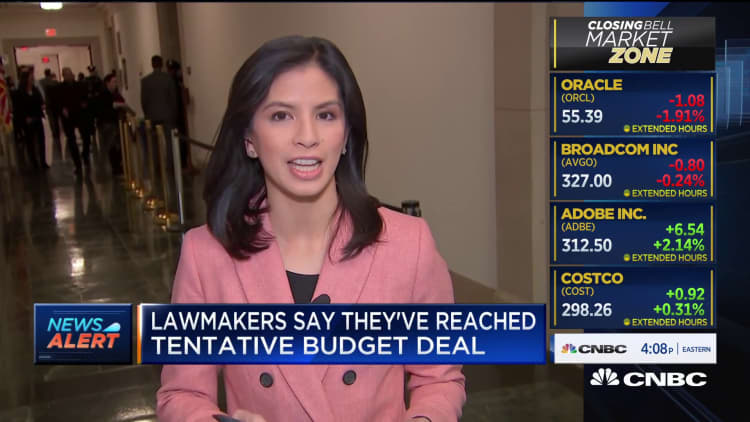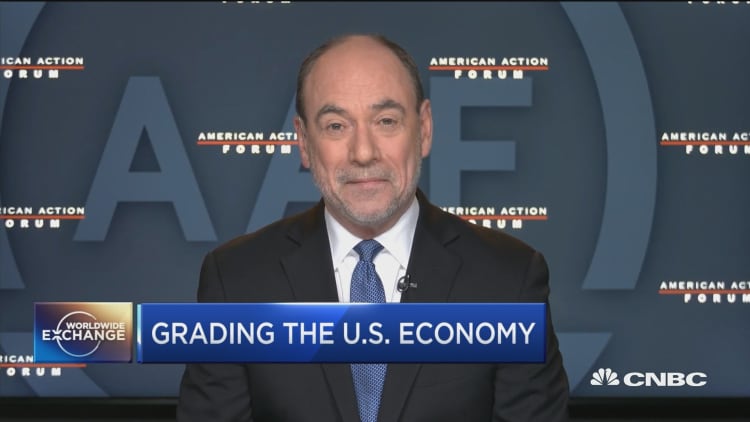President Donald Trump plans to sign spending bills Congress will rush to pass before the government shuts down, a top White House advisor said Tuesday.
The president is "poised to sign" the legislation, Kellyanne Conway told reporters. Trump is "very happy" about what he has heard about the plans, she said.
The House aims to approve the $1.4 trillion spending measures Tuesday afternoon, less than 24 hours after lawmakers released them. Congress needs to pass 12 appropriations bills — split into two packages — by Friday to avoid a shutdown.

The spending legislation will keep the government running through Sept. 30, the end of the next fiscal year. Aside from funding federal departments, the agreement also includes unrelated measures to repeal Obamacare's "Cadillac" tax on high-cost health insurance benefits and raise the U.S. tobacco buying age to 21.
Appropriators reached the deal after months of talks and two short-term spending bills to prevent shutdowns. Trump's opposition could have jeopardized the spending package's passage in the Republican-held Senate.
The sprawling legislation also includes:
- $1.375 billion for Trump's prized barriers on the U.S.-Mexico border, the same amount as the prior year but less than he desires
- $25 million for gun violence research — the first time the effort has received funding in two decades
- A 3.1% increase in pay for both military members and federal civilian employees
- A $22 billion hike in defense spending
- $425 million for election security grants
- $1.5 billion for state grants to respond to the opioid crisis
Earlier this year, lawmakers passed a two-year agreement to suspend the federal debt ceiling and set budget levels. It took Congress longer to decide where to actually send the money.

Congress hopes to avoid a second straight holiday shutdown. A record 35-day partial government shutdown stretched from last December into January.


